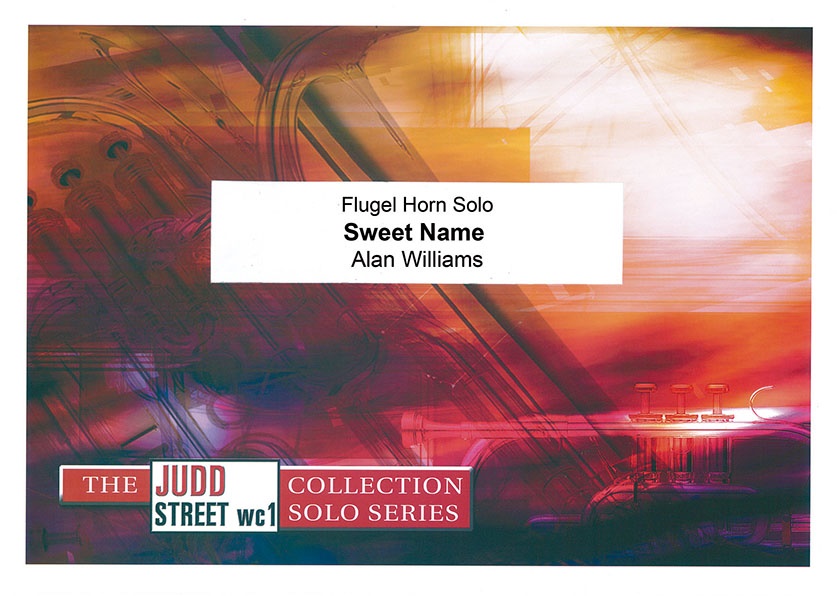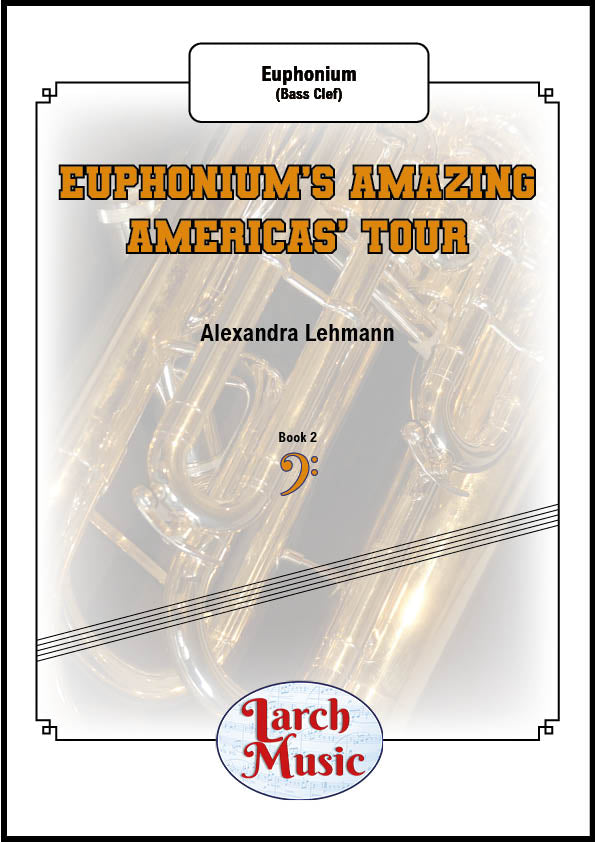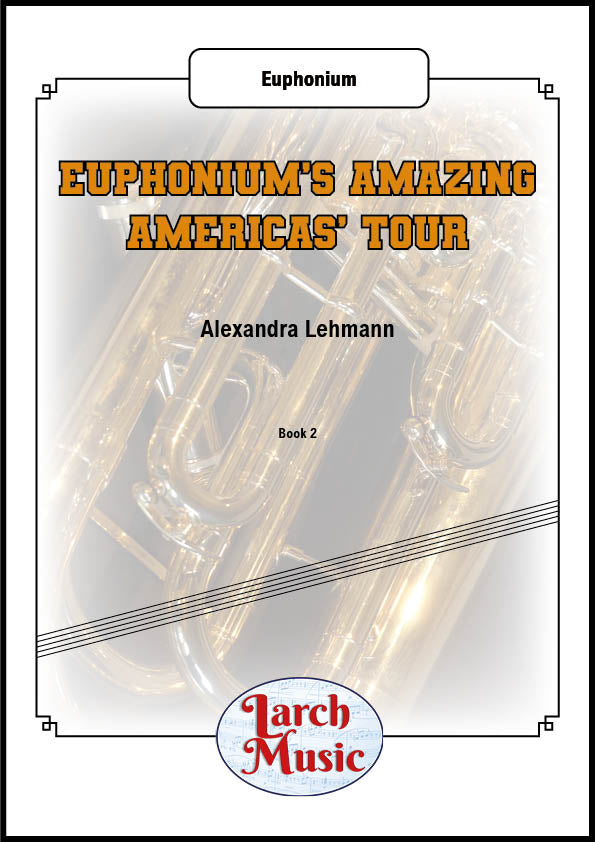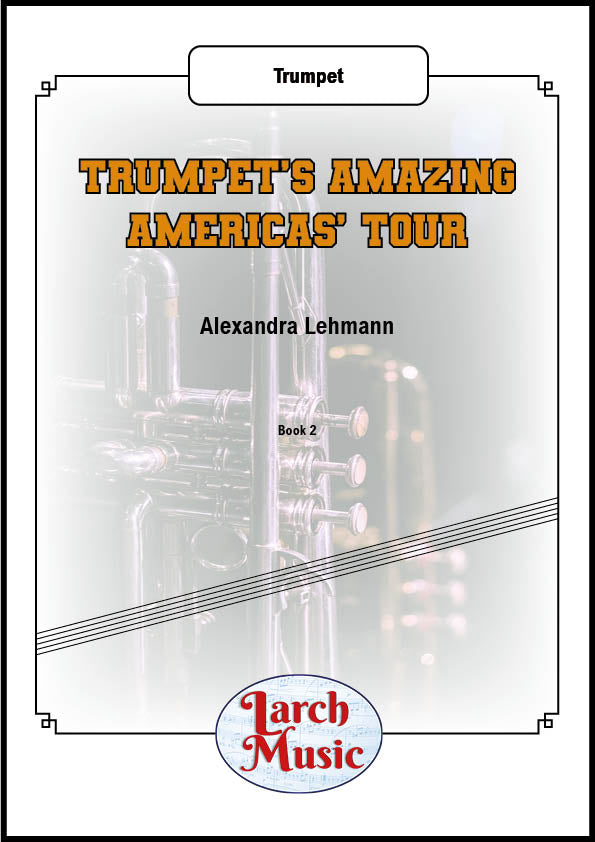Results
-
 £69.95
£69.95Transformation (Brass Band - Score and Parts)
I believe in transformation, God can change the hearts of men, And refine the evil nature, till it glows with grace again'. So wrote John Gowans in the second verse of his great hymn, 'I believe that God the Father, can be seen in God the Son', written specifically to affirm Salvationists' beliefs. It is sung to the tune Bethany and in seeking to explore this great subject at the heart of the Christian gospel in musical terms, the composer has used this fine tune as the basis. Although it never appears in its entirety, it is seldom out of the picture and much of the work is derived from it. The other main source of material is the lovely, simple chorus, 'Some day I shall be like him, changed to heavenly beauty, when his face I see'. This chorus is especially prominent in the middle section but there are important references to it throughout. There are also brief references to Charles Wesley's hymn, 'Love Divine' and, in particular, the telling lines, 'Changed from glory into glory, till in Heaven we take our place'. The work suggests that, at times, the process of being transformed is a struggle, portrayed with many passages of fraught and demanding music. Considerable reserves of stamina and technique are required while, in contrast, the chorus, 'Some day I shall be like him' provides the warm, gentle centre of the work. The premiere of the work was given by The International Staff Band of The Salvation Army in Cadogan Hall on Friday 3rd June 2011, as part of the band's 120th anniversary celebrations.
Estimated dispatch 7-14 working days
-
 £44.95
£44.95Sweet Name (Flugel Horn Solo with Brass Band - Score and Parts)
The music was written at the request of Richard Woodrow of The International Staff Band in 2018. It is a big band setting of William Henry Rudd's melody The Saviour's name (T.B. 119), to which we associate the following words by Frederick Whitfield (S.A.S.B. 94):There is a name I love to hear,I love to sing its worth;It sounds like music in mine ear,The sweetest name on earth.O how I love the Saviour's name!The sweetest name on earth.
Estimated dispatch 7-14 working days
-
 £55.00
£55.00Second Suite in F - Gustav Holst arr. Phillip Littlemore
Gustav Holst's Second Suite in F was composed in 1911, two years after the first suite, yet like his first suite it didn't receive its premiere until many years later, on 30th June 1922, at Royal Albert Hall in London and performed by band of The Military School of Music.The Suite uses English folk songs and folk dance tunes throughout. The opening march movement uses three tunes: a lively Morris Dance called Glorishears, the folk song Swansea Town and finally Cloudy Banks. The first two tunes are repeated to conclude the first movement. The second movement is a setting of I'll Love My Love, a sad story of a young maiden driven into Bedlam by grief over her lover being sent to sea by his parents to prevent their marriage. The Song of the Blacksmith follows with a lively hammer rhythms and the score actually asks for a blacksmith's anvil. The final movement is a fantasia based on the 16th Century English country-dance, The Dargason, with the Elizabethan love-song Greensleeves intertwined. This is a new brass band arrangement that has a lighter texture to that made by Sydney Herbert, restoring it to the original key of F and including sectioned omitted from the 1923 arrangement.Duration: c. 12 minutesDifficulty: 2nd Section and above
Estimated dispatch 5-7 working days
-
 £30.00
£30.00Presley In Mind
Includes: "Are You Lonesome Tonight?", "Can't Help Falling in Love", and "Wonder of You".Whether you like Elvis or not, audiences will love this medley. Three of his well known ballads, to which the audience can sing along.Talking of singing, the middle section of the band get their chance too! A very popular medley, which has also been included in 'entertainment contests'. The Parr Band won their section at Wychavon in 2004, judged by Goff Richards."Presley in Mind" is featured on Flixton Band's CD (order from [email protected] price �10).Robert Childs commented:"The brass writing is very accessible. The third tune in this triptych of Presley's pop songs requires the entire horn, baritone, trombone and euphonium sections to sing as well - all good fun I'm sure".
In Stock: Estimated dispatch 3-5 working days
-
 £189.95
£189.95'The New Christmas Collection' - Full Set March Card Size
The new Christmas Collection carol books contain all the traditional Christmas Carols, with some new 'pop' music arrangements included to add more variety to your carolling this year.
* Note, these are not compatible with the New Christmas Praise books.
Full list of works in The Christmas Collection:-
• A child this day is born
Estimated dispatch 7-14 working days
• A Christmas lullaby
• A great and mighty wonder
• All I want for Christmas is you
• All my heart this night rejoices
• Angels, from the realms of Glory (Come and worship)
• Angels, from the realms of Glory (Iris)
• Angels we have heard on high
• A starry night
• As with gladness men of old
• Auld lang syne
• A virgin most pure
• Away in a manger (The manger scene)
• Away in a manger (Traditional)
• A winter’s tale
• Bethlehem
• Brightest and best (Spean)
• Brightest and best (Traditional)
• Calypso Carol
• Carol for the Nativity
• Carol of the bells
• Carol of the drum
• Child of Mary
• Christians Awake!
• Christ is born (Il est né)
• Christ was born on Christmas Day
• Come and join the celebration
• Come, children, come quickly
• Coventry Carol
• Deck the hall
• Ding dong! merrily on high
• Do you hear what I hear?
• Frosty the snowman
• Gabriel’s Message
• Gaudete
• Glory in the highest
• Glory in the highest Heaven
• God of God, the uncreated
• God rest you merry, gentlemen
• Good Christian men, rejoice
• Good King Wenceslas
• Go, tell it on the mountain!
• Happy Christmas (War is over)
• Hark the glad sound!
• Hark! the herald angels sing
• Have yourself a merry little Christmas
• Here we come a-wassailing
• How far is it to Bethlehem?
• Huron Carol
• Infant Holy
• In the bleak midwinter (Cranham)
• In the bleak midwinter (Darke)
• I saw mommy kissing Santa Claus
• I saw three ships come sailing in
• It came upon a midnight clear (Traditional)
• It came upon a midnight clear (Willis)
• It’s beginning to look a lot like Christmas
• It’s the most wonderful time of the year
• I wish it could be Christmas everyday
• I wonder as I wander
• Jesus, good above all other
• Jingle Bells
• Jingle bell rock
• Joy to the world!
• Last Christmas
• Let it snow!
• Little baby Jesus
• Little children, wake and listen
• Little Donkey
• Little Jesus, sweetly sleep
• Lo! he comes with clouds descending
• Long, long ago
• Love came down at Christmas
• Mary’s boy child
• Mary’s Child
• Masters in this hall
• Merry Christmas everyone
• Mistletoe and wine
• Noel
• O Christmas tree
• O come, all ye faithful
• O come, Immanuel
• O Heaven-sent King
• O holy night!
• O little town of Bethlehem (Christmas Carol)
• O little town of Bethlehem (Forest Green)
• O little town of Bethlehem (St Louis)
• Once in royal David’s city
• Past three o’clock
• Patapan
• Personent Hodie
• Praise ye the Lord
• Ring the bells
• Rise up, shepherd!
• Rockin’ around the Christmas tree
• Rudolph, the red-nosed reindeer
• Sans day carol
• Santa Claus is comin’ to town
• Saviour’s Day
• See, amid the winter’s snow
• Silent Night!
• Sleigh Ride
• Softly the night is sleeping
• So here it is, merry Christmas
• Stars are shining
• Still, still, still
• Stop the cavalry
• Sussex Carol
• Sweet chiming bells
• Sweet chiming Christmas bells
• The candle song
• The cherry tree carol
• The Christmas song
• The first Nowell
• The holly and the ivy
• The infant King
• The light has come
• The shepherds’ farewell
• The stable door
• The star in the east
• The twelve days of Christmas
• The virgin Mary had a baby boy
• They all were looking for a king
• Thou didst leave thy throne
• Three kings’ march
• Unto us a boy is born
• Walking in the air
• We gather round the manger-bed
• We three kings of Orient are
• We wish you a merry Christmas
• What child is this?
• When a child is born
• When Santa got stuck up the chimney
• Whence is that goodly fragrance flowing?
• When wise men came seeking
• While shepherds watched (Cranbrook)
• While shepherds watched (Handel)
• While shepherds watched (Winchester Old)
• White Christmas
• Who is he?
• Winter Wonderland
• Worldwide Christmas message
• Zither Carol
• A starry night
• Christmas Joy
• Christmas Praise
• Coventry Carol
• Infant Holy
• Mid-winter
• Rudolph, the red-nosed reindeer
• The everlasting light
• To celebrate his birth
• Yuletide Rag
-
 £22.50
£22.50Edward Gregson: Concertante for Piano and Brass Band
DescriptionProgramme NoteThe Concertante for Piano and Brass Band was written in 1966, when the composer was an undergraduate student at the Royal Academy of Music in London. It received its first public concert performance in 1967 at the Royal Festival Hall, London, when the composer was the soloist with the International Band of the Salvation Army, conducted by Bernard Adams. It was one of the first major works to be written for this particular combination.The Concertante is unashamedly romantic in idiom and is in three movements: Prelude, Nocturne and Rondo. The Prelude is cast in sonata form and opens with a short cadenza-like flourish from the soloist, followed by two main ideas - the first sweepingly dramatic, the second highly lyrical. The interplay between these two themes forms the main focus of the movement, and after a return to the opening theme, an exuberant codetta brings the music to a close, albeit a quiet one. https://morthanveld.com/wp-content/uploads/2017/09/Gregson-Concertante-1st-movt-clip.mp3The tender Nocturne opens with an introduction from the band that contains precursors of the two main ideas to follow. The solo piano announces the main theme, which has a slightly 'bluesy' character with its flattened third and seventh notes of the scale, and is a love song dedicated to the composer's wife-to-be. The band enters with phrases of a chorale already hinted at in the introduction - Ray Steadman-Allen's hymn tune 'Esher' - but never quite presented in its complete state. Both ideas are developed alongside each other, with eventually the first theme returning, this time with piano and band together, and building to a majestic climax, before subsiding to a peaceful coda - a return to the very opening of the movement. https://morthanveld.com/wp-content/uploads/2017/09/Gregson-Concertante-movt-2-clip.mp3The final Rondo is full of energetic rhythms and changing time patterns. The main theme is playful in character, with much interplay between soloist and band, whilst the middle section presents a new theme, and one that has more than a hint of the hymn tune 'Onward Christian Soldiers', in what amounts to a good humoured parody. The opening Rondo theme returns, this time leading to a powerful and dissonant climax from the band. This is followed by an extended piano cadenza, underlying the virtuoso aspect of the work, and leading to an energetic and life-affirming coda, which brings the work to a triumphant conclusion. https://morthanveld.com/wp-content/uploads/2017/09/Gregson-Concertante-movt-3-clip.mp3Duration: 18 minutesInstrumentation:Please note that there is no 1st/Repiano Cornet part in this work. The 1st/Repiano Cornet player should join the Solo Cornet bench. As such an extra Solo Cornet part is provided in the set of parts.Version for two pianosA version of the Concertante for two pianos is available for rehearsal purposes. Piano 1 is the solo part and Piano 2 the band reduction. However, for those pianists not needing to rehearse the work in this way, a solo piano part is also provided with the main set of band parts.To view a preview of the solo part for the first movement click here.The youthful Gregson (his work was written as a third year undergraduate) was seemingly a bit of a musical magpie - but one heck of a skilful one at that.These were shiny baubles of poise, panache and pastiche, with affectionate, remarkably mature nods of appreciation towards Gershwin, Rachmaninov, Ireland and even Elmer as well as Leonard Bernstein.The rich colour palette and flowing lines (with the tenderest of central Nocturnes) were a joy - as were the little buds of motifs that dotted the score like seeds ready to be planted on a future fertile brass band compositional field. - Iwan Fox, 4Barsrest.com, June 2019For more information on Edward Gregson's music please visit the composer's website: www.edwardgregson.com
Estimated dispatch 7-14 working days
-
 £76.99
£76.99On the Movieset - John Emerson Blackstone
Glitter and glamour, good-looking people, a lot of Bling Bling and fast cars images like these will cross our minds when we think of the movie world. However, reality proves to be different : as a rule, a tremendous amount of work will have been done on the set before a film is ready to be shown on the big screen. A visit to an actual movie set inspired John Emerson Blackstone to write a composition bearing the same name. He had both seen a number of characteristic attributes and heard the typical phrases used in film making, and he incorporated them into 'On the Movie Set' . In the first part, 'The Clapboard', a 'director's assistant' is supposed to shout "Quieton the set'" and "Action!", as is done before a real scene is shot. Subsequently, in order to create the right atmosphere, the clacking of a 'Clapboard' should be heard. During a romantic scene we should be transported to another world by means of sweet sounds in the background, so romantic music is of course heard in the next part, 'Love Scene'. At the end of a long working day 'It's a wrap' is called on the set to inform everyone that the filming on that day is completed. Now there is only one more thing left to dream of : an Oscar..... Perf. Note: The use of the right props will add to the performance and appreciation of 'On the Movie Set'. A red carpet and a glamorous reception should give your audience the feeling they are attending a real 'opening night'!
Estimated dispatch 5-14 working days
-
 £9.95
£9.95Euphonium's Amazing Americas Tour - Solo Euphonium (Bass Clef) - LM172 - Alexandra Lehmann
COMPOSER: Alexandra LehmannEuphonium's Amazing Americas TourThe year 2020 will be infamously recorded as a time when musicians had to lead a solitary life, which is incompatible with musical activity.1. Hearty HoedownEuphoniumplays at a lively, social, rural gathering;a 'hoedown'; for cowboys and girls. Yeeha!2. Barcarolle BluesOn the 18th of December 1865, the 13th Amendment(abolishing slavery in USA) was officially adopted into the Constitution.Euphoniumis on a boat sailing the Mississippi with former slavestravelling further north in hope of a better life.As the river gently sways the traumatised passengers,they find solace in music-making.3. Kindred KlezmerEuphoniumis playing for Ashkenazi (West and East European)Jews dancing fervently and with joy as a community.4. Carnival CalypsoFurther south, in 1834,Euphonium is playing at a carnivalcompetition in Trinidad, celebrating the abolition of slavery.It is in call (the lead singer)-and-response (the rest of the group) form.The chariot passes through cheering crowds,and trundles merrily into the distance.5. Tantalising TangoEuphoniumis at a dance theatre in downtown Buenos Aires,playing an intense, and moody tango.Couples dance in a passionate and powerful embrace.6. Hallowed Harawi of the IncasThe Incas are no more, like so many indigenouspeoples of the Americas.Euphonium plays an Incan Harawi,a love song, as their spirit still echoes across the valleys,mountains, forests, and rivers that nurtured them in ancient times.
In Stock: Estimated dispatch 3-5 working days
-
 £9.95
£9.95Euphonium's Amazing Americas Tour - Solo Euphonium (Treble Clef) - LM169 - Alexandra Lehmann
COMPOSER: Alexandra LehmannEuphonium's Amazing Americas TourThe year 2020 will be infamously recorded as a time when musicians had to lead a solitary life, which is incompatible with musical activity.1. Hearty HoedownEuphoniumplays at a lively, social, rural gathering;a 'hoedown'; for cowboys and girls. Yeeha!2. Barcarolle BluesOn the 18th of December 1865, the 13th Amendment(abolishing slavery in USA) was officially adopted into the Constitution.Euphoniumis on a boat sailing the Mississippi with former slavestravelling further north in hope of a better life.As the river gently sways the traumatised passengers,they find solace in music-making.3. Kindred KlezmerEuphoniumis playing for Ashkenazi (West and East European)Jews dancing fervently and with joy as a community.4. Carnival CalypsoFurther south, in 1834,Euphonium is playing at a carnivalcompetition in Trinidad, celebrating the abolition of slavery.It is in call (the lead singer)-and-response (the rest of the group) form.The chariot passes through cheering crowds,and trundles merrily into the distance.5. Tantalising TangoEuphoniumis at a dance theatre in downtown Buenos Aires,playing an intense, and moody tango.Couples dance in a passionate and powerful embrace.6. Hallowed Harawi of the IncasThe Incas are no more, like so many indigenouspeoples of the Americas.Euphonium plays an Incan Harawi,a love song, as their spirit still echoes across the valleys,mountains, forests, and rivers that nurtured them in ancient times.
In Stock: Estimated dispatch 3-5 working days
-
 £9.95
£9.95Trumpet's Amazing Americas Tour - Solo Trumpet - LM187
COMPOSER: Alexandra LehmannTrumpet's Amazing Americas TourThe year 2020 will be infamously recorded as a time when musicians had to lead a solitary life, which is incompatible with musical activity.1. Hearty HoedownTrumpetplays at a lively, social, rural gathering;a 'hoedown'; for cowboys and girls. Yeeha!2. Barcarolle BluesOn the 18th of December 1865, the 13th Amendment(abolishing slavery in USA) was officially adopted into the Constitution.Trumpetis on a boat sailing the Mississippi with former slavestravelling further north in hope of a better life.As the river gently sways the traumatised passengers,they find solace in music-making.3. Kindred KlezmerTrumpetis playing for Ashkenazi (West and East European)Jews dancing fervently and with joy as a community.4. Carnival CalypsoFurther south, in 1834,Trumpet is playing at a carnivalcompetition in Trinidad, celebrating the abolition of slavery.It is in call (the lead singer)-and-response (the rest of the group) form.The chariot passes through cheering crowds,and trundles merrily into the distance.5. Tantalising TangoTrumpetis at a dance theatre in downtown Buenos Aires,playing an intense, and moody tango.Couples dance in a passionate and powerful embrace.6. Hallowed Harawi of the IncasThe Incas are no more, like so many indigenouspeoples of the Americas.Trumpet plays an Incan Harawi,a love song, as their spirit still echoes across the valleys,mountains, forests, and rivers that nurtured them in ancient times.
In Stock: Estimated dispatch 3-5 working days



